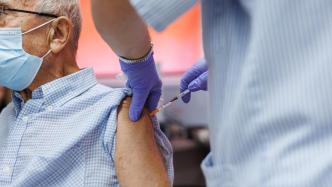
A report published on October 17 in the British scientific journal "Nature Human Behavior" pointed out that due to the impact of the new crown epidemic, there are huge differences in life expectancy per capita in different regions of the world. Thanks to the high vaccination rate of the new crown vaccine, life expectancy has recovered rapidly in some countries.
Researchers at the Liversum Centre for Demography at the University of Oxford in the United Kingdom pointed out last year that the new crown epidemic caused the largest drop in human life expectancy since World War II in 2020. In 2021, there will be "sudden differences" in life expectancy across countries, with "some countries starting to show signs of recovery" and others further deterioration.
The study analyzed death data from more than 20 countries in Europe, as well as the United States and Chile since 2015, and found that life expectancy in some Western European countries has returned to near the level before the outbreak of the new crown epidemic, while life expectancy in Eastern European countries has declined severely.
Among them, Bulgaria's average life expectancy will be shortened by 18 months in 2020 and another 25 months in 2021, which is equivalent to more than three and a half years shorter than before the epidemic began. Bulgaria has the lowest vaccination rate among European Union countries.
Research shows that countries with a larger proportion of the population who have completed the full course of vaccination against the new crown by October 2021 have a smaller decline in life expectancy. This suggests a "clear link" between the two, Kahyap said.
In some countries, life expectancy for people over 80 is returning to normal, the report noted. Kahyap believes that to some extent, this shows that the new crown vaccine "is indeed protecting the elderly."
Very well expressed genuinely! ! web site You've made your stand quite well.. casino en ligne Nicely put, With thanks! casino en ligne Thanks a lot! Quite a lot of write ups! casino en ligne Cheers, I like it. casino en ligne You actually reported that terrifically! casino en ligne You have made your stand extremely nicely!! casino en ligne Cheers! Good stuff! casino en ligne Kudos, Quite a lot of tips! casino en ligne Incredible plenty of amazing data! casino en ligne